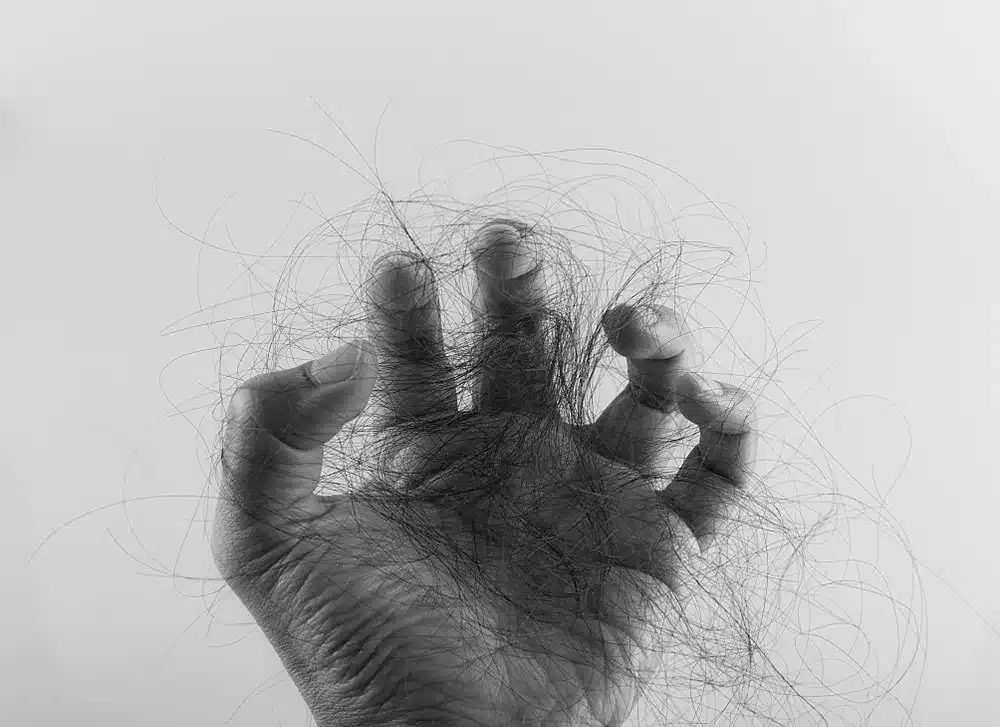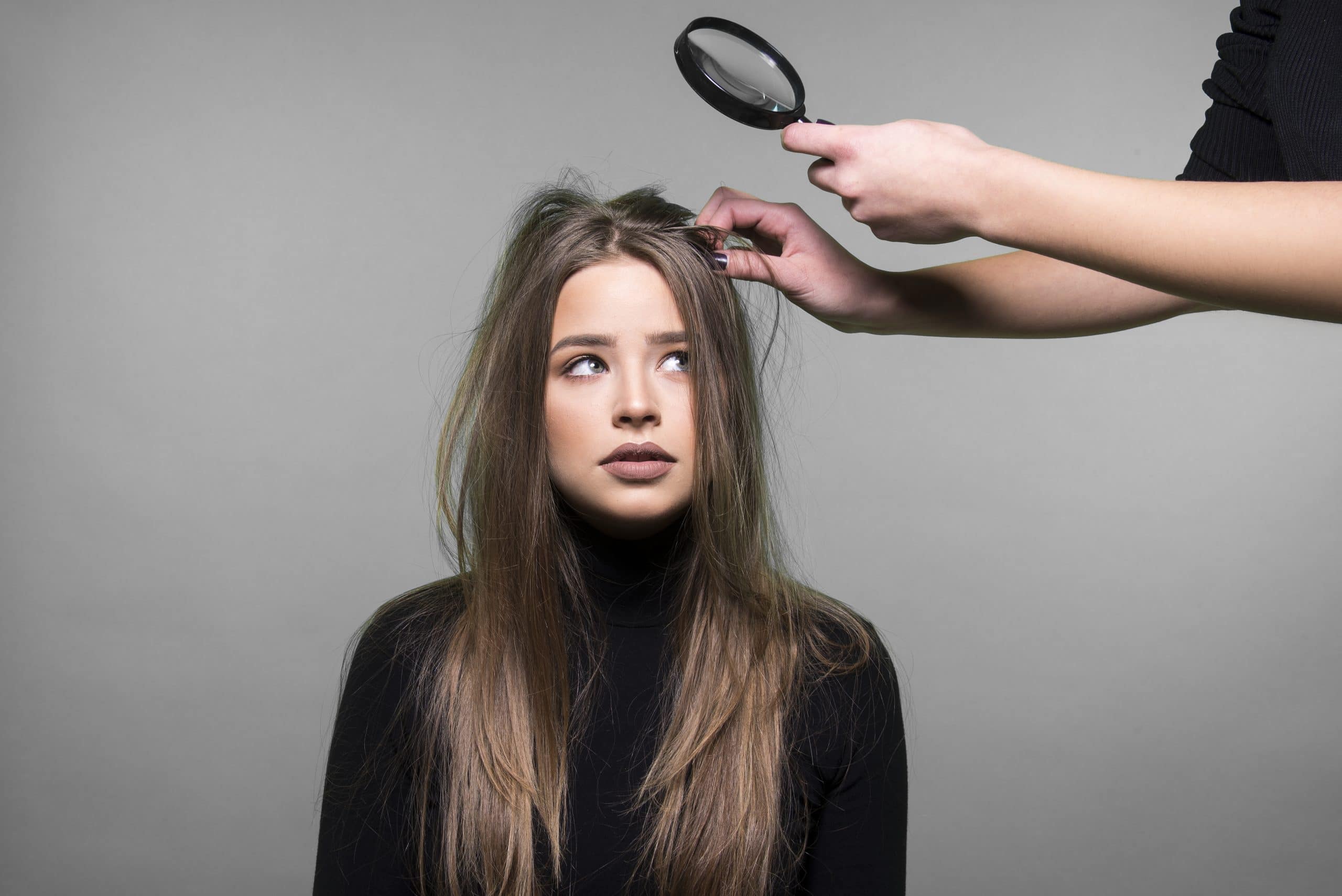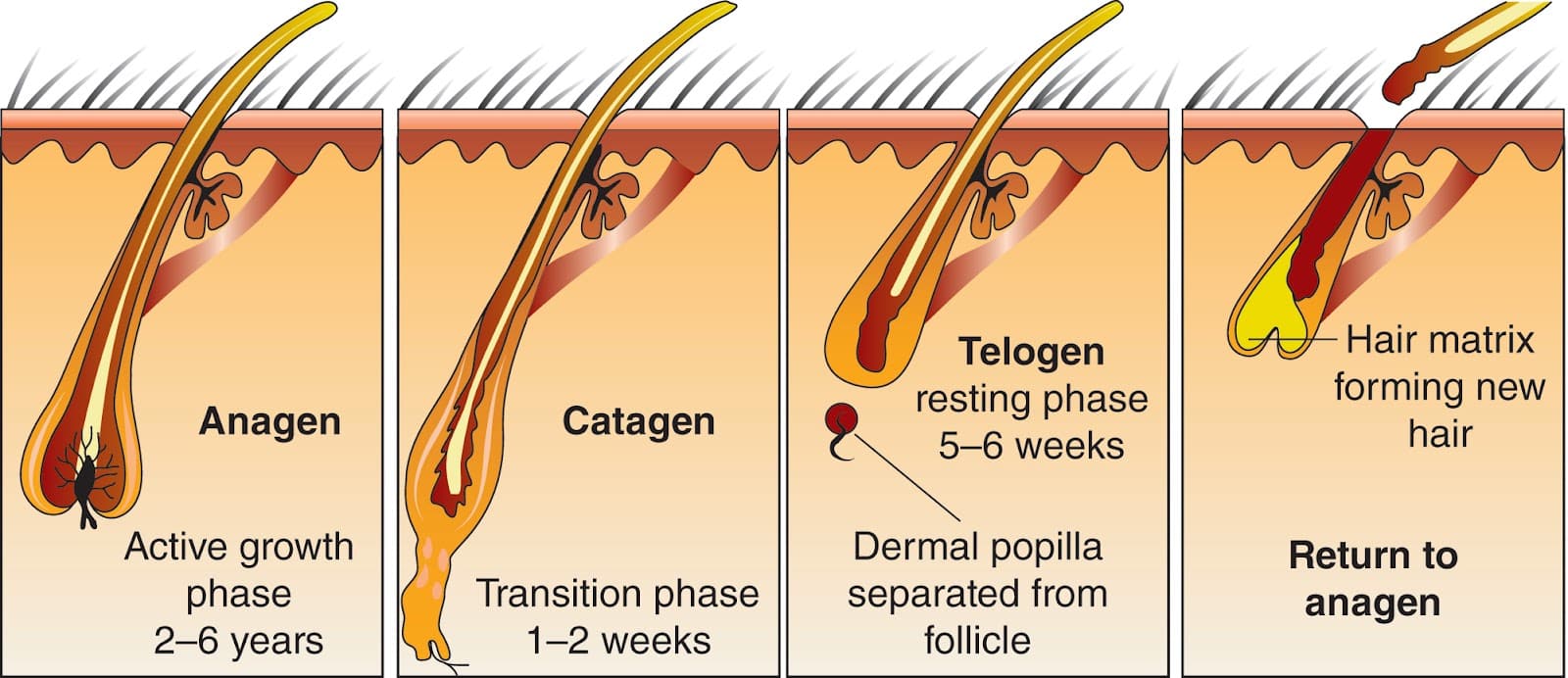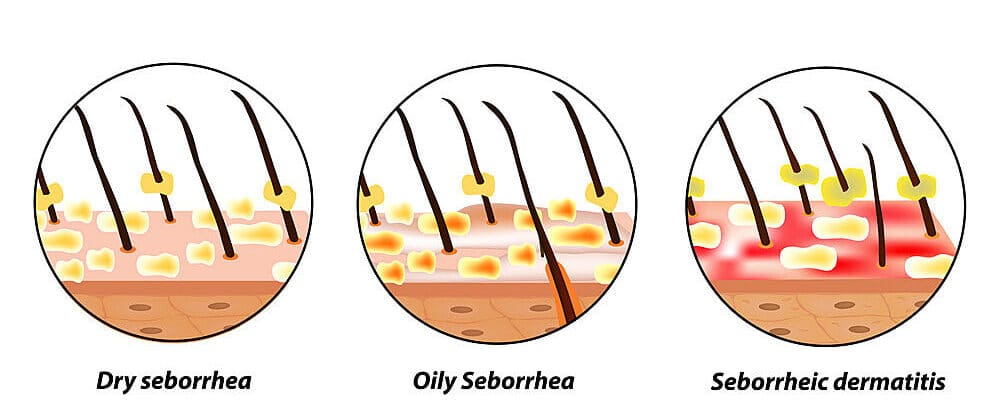
Dandruff & Hair Loss: How Are They Really Connected?
- February 9, 2022


We all know the feeling of wearing our favourite black shirt or jacket, turning our head, and seeing those pesky white flakes on our shoulder. It makes us automatically raise our hand to brush the flakes off as much as we can, and want to head right into the shower to scrub away those uninvited white cells! Unfortunately and misleadingly, despite what a lot of us think, dandruff really isn’t a sign of poor hygiene for most of us.
It does not represent the number of times you wash your hair (in fact, over-washing can be a reason for dandruff), or shampooing habits – it’s the inflammation of your skin from having overly dry or overly oily skin on the scalp that creates the perfect environment for inflammation, itching, and flaking to happen; and in some cases, the overgrowth of yeast.
Also Read: How To Choose An Anti-Hair Fall Shampoo?
For teenagers experiencing hair loss and dandruff concurrently at the same time, it can be very easy to blame the dandruff as causing hair loss – someone experiencing chronic dandruff may start to notice more hair falling during their showering or shampooing and think that the dandruff is to blame! They may even start looking for options to get rid of the dandruff by perhaps shampooing more, which can aggravate the problem. There is a lot more to teenage hair loss reasons, and also dandruff and hair loss which we will discuss in this article.
Some highlights of this article are:
Read on more to find out!
To understand whether dandruff can cause hair loss, we need to look at what our hair structure consists of to understand how it falls, as well as what dandruff actually is and where it comes from!

A single hair consists of the hair shaft, which is the part that comes out of our scalp and shows; the root that lies below the skin; the hair follicle which is where the hair root grows out from. The hair follicles go through different phases of rest (telogen phase) and growth (anagen phase). The hair root grows new cells and when these cells are pushed out to create more new ones, those old and dead cells become the hair that we see on the scalp!
So, when we ‘lose hair’, we’re losing the hair that is in the passing telogen phase which is about 8-9% of our hair at any given time. A person usually has 100,000 or more hair follicles on their head, so losing up to 50-100 strands of hair each day is surprisingly considered normal. When a strand of hair falls out, the hair matrix is already beginning to form new hair by continuing the cycle and returning to the anagen phase, or active growth phase.
When it comes to dandruff, it is considered a skin condition. The American Academy of Family Physicians (AAFP) terms it ‘seborrhea’, defined as a common skin problem that causes a red, itchy rash and white scales and is called ‘dandruff’ when it affects the scalp. Since excessive hair loss is caused by problems with the hair follicle, and not the skin, how exactly then does dandruff cause hair loss?
Dandruff is a common skin condition that causes the skin on the scalp to flake off. There can be various reasons why the skin on the scalp becomes flaky and itchy, such as due to fungal infections or allergic reactions to hair products, which can cause the scalp to either dry out and flake, or produce excess sebum that makes it extremely oily, which can also cause flaking.
This is then categorised into dry seborrhea (from excessively dry skin), oily seborrhea (from excessively oily skin), or seborrheic dermatitis (which is an inflammatory reaction to Malassezia yeast overgrowth). As a result of this, the scalp becomes inflamed and itchy, resulting in an individual scratching at their skin to relieve the itchy.
However, this causes more damage as constant inflammation and scratching, which then causes more inflammation, bleeding, or scabbing, and can actually damage your hair follicles, leading to more hair loss. In even more severe cases, the skin on the scalp may scar and cause further damage that affects future hair growth.

In a nutshell, the conclusion is that dandruff in itself may not immediately lead to hair loss. However, the root causes of dandruff as well as the scratching that may occur are the reasons that teenage hair loss can occur from the damage to hair follicles.
There are several conditions where dandruff and hair loss go hand in hand.

Psoriasis is a condition whereby the immune system is triggered and activated, acting as though there are harmful pathogens attacking the body. Unfortunately, some of the areas that this inflammatory reaction can occur is in the skin; more specifically, the skin on the scalp.
Psoriasis can cause red patches that are scaly and raised, which is why people may confuse them with eczema; however, psoriasis usually presents with thicker skin and more inflammation than eczema. Scalp psoriasis can occur in one or two patches, or it can be widespread across the scalp.
In itself, scalp psoriasis doesn’t cause hair loss, but because the skin inflammation causes itchiness and the individual suffering from psoriasis may scratch or pick at the scaly spots. The combination of abrasion and stress that comes together with the condition can lead to temporary hair loss which will go away once the condition clears up.

Seborrheic dermatitis is a scalp condition that can be considered as a chronic form of eczema. Eczema often makes your skin red and inflamed, with crustiness of skin that can ooze like blisters, and eventually form rough, leathery patches. Swelling may also occur. Compared to psoriasis, eczema often causes an intense itch that can get so bad an individual may scratch enough to make their skin bleed.
Often, an overproduction of sebum or oil in the scalp and the overgrowth of a yeast called Malassezia found in oils causes skin to become inflamed and itchy, resulting in flaky dandruff and crusty skin on the scalp. This often occurs in parts of the body with higher sebum production like the face, chest, back of the ears and – you guessed it! – the scalp.
Teenagers experiencing dandruff and hair loss may have a higher chance of this happening due to hormonal changes causing their body to produce more sebum, and even in Singapore where the humid weather can encourage more sebum production. A person can often tell that they have seborrheic dermatitis if they have red greasy skin covered with flaky white or yellow scales.
Also Read: Reasons For Hair Loss Among Teenagers

A person may develop sensitivity to certain ingredients in products that they use on their scalp. This includes the chemicals found in shampoos, hair dyes, or scalp treatments. More specifically, the detergents, preservatives, and fragrances found in hair products can often cause irritation, especially if you have sensitive skin. Strong products like hair dye or bleach, or products which act to curl or straighten your hair can also cause such a reaction, leading to contact dermatitis, which is a condition where the skin becomes irritated and forms a red, itchy rash caused by direct contact with a substance or an allergic reaction to it. Some people may even use products for years before noticing any kind of reaction!
Also Read: Reasons Behind Premature Baldness & How To Treat It
Here are some ways that a teenager can help to avoid hair loss due to dandruff:
As mentioned, the skin on your scalp can contribute to dandruff and hair loss if it is too dry or irritated, or has an allergy reaction to the products you are using. Even shampooing too often or using products which are too harsh for your scalp and hair can cause this irritation. Try changing up your shampoo into something with a more gentle formula specially formulated for dry hair or sensitive scalps. Baby shampoo can be a great choice as many of them are suitable for sensitive skin and are usually fragrance-free, which helps prevent irritation.
If you notice that you frequently wash your hair daily and are using hot water or hair products which contain alcohol, you may want to try looking for alcohol-free products to prevent your scalp from drying out and itching. You may also want to try using lukewarm water while washing your hair to avoid increasing the inflammation on your already inflamed scalp. Another option is to use a medicated shampoo designed to help with dandruff, especially if you are only experiencing a mild case of dandruff. Medicated shampoos can usually help mild dandruff conditions in 2-3 weeks.
A poor diet without sufficient nutrients is not able to support your skin health, and can also contribute to developing a dry scalp that is unable to heal properly if there exists any scabbing or bleeding. Some nutrients that can really help your hair follicles are:
A diet that is high in sugar can worsen dandruff, especially if your dandruff is attributed to excessive yeast overgrowth. An over-consumption of sugar can promote growth of this yeast and contribute to the problem of dandruff, itching, and hair loss.
While stress won’t directly cause dandruff, it can weaken your immune system over time and makes your scalp more sensitive to the yeast that naturally is already on your scalp. Identify your stress triggers so that you are able to adapt some coping strategies and prevent stress from taking over your life (and hair!). Learning relaxation techniques, such as yoga or meditation, or doing some controlled breathing for a minute or two can help.
Taking a walk in the park in the evening can also help reduce stress and allow you to get some Vitamin D through moderate sun-exposure. A little bit of sunlight may be good for dandruff, just remember to use SPF on your face and body.
Often, as long as the root cause of the dandruff is treated, hair loss from dandruff is typically only temporary. According to the American Hair Loss Association (AHLA), there is a connection between seborrheic dermatitis and loss of hair, but the hair loss is only temporary. The treatment for such scalp conditions usually involves using a medicated anti-dandruff shampoo, or sometimes an antibiotic prescription if inflammation is severe. The inflammation can also be controlled by a corticosteroid cream or lotion. Once treated, hair will grow back in a couple of months!
Don’t let your scalp itchiness or dandruff get in the way of you living your life, get a hair loss treatment in Singapore. Often times, scalp conditions can be remedied by looking at what’s going on over the surface of your skin and whether there may be other underlying conditions that are contributing to hair loss such as a genetic contribution causing androgenetic alopecia, or even hair loss in round patches which may be an autoimmune response called alopecia areata.
Whether you are a male or female, adult or teenager, hair loss can have a huge impact on your life. Don’t wait to get started today, contact us at SL Aesthetic Clinic to book an appointment with one of our certified professionals at the nearest branch near you!
Like what you read? Share them!